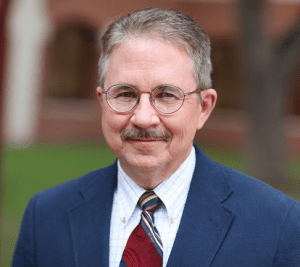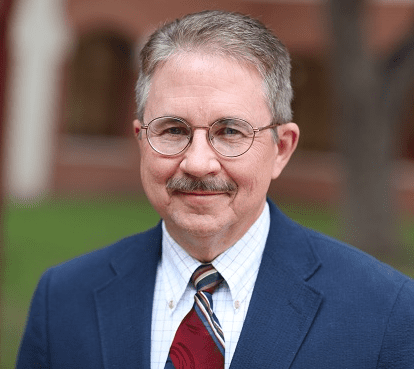 Studying heresies is a way of studying how orthodoxy came into full expression. As I said in recent post, heresy is the mother of orthodoxy. It is problems that give rise to solutions or resolutions or articulations. In that context Roger Olson, in his fine new book Counterfeit Christianity: The Persistence of Errors in the Church, examines what I would say is America’s deepest heresy: deism. It is both historic — Thomas Jefferson — and pervasive — in Moral Therapeutic Deism. It is with us and it is probably here to stay. To re-use an image Olson uses from Karl Barth lat in this chp, the gospel is a gift taken in hand, but some deist hands then think they can control the gift and reshape it.
Studying heresies is a way of studying how orthodoxy came into full expression. As I said in recent post, heresy is the mother of orthodoxy. It is problems that give rise to solutions or resolutions or articulations. In that context Roger Olson, in his fine new book Counterfeit Christianity: The Persistence of Errors in the Church, examines what I would say is America’s deepest heresy: deism. It is both historic — Thomas Jefferson — and pervasive — in Moral Therapeutic Deism. It is with us and it is probably here to stay. To re-use an image Olson uses from Karl Barth lat in this chp, the gospel is a gift taken in hand, but some deist hands then think they can control the gift and reshape it.
Hence, a heresy. There are three parts here:
First, Folk Religion.
As Olson puts it, this heresy is a kind of folk religion: “heresy rears its ugly head in the form of what some sociologists of religion call “folk religion” (138).
Folk religion is to religion what folk medicine is to the science of medicine and what folk psychology is to the science of psychology. 139
Folk religion replaces tradition, orthodoxy, scholarship, inquiry, biblical hermeneutics, and theology with beliefs based on comfort and spiritual excitement or satisfaction. 140
It replaces biblical and theological teachings about life after death with “testimonies” of near death or death experiences in books and movies. 140
And folk religion divorces religion from public life and reduces it to a coping mechanism for individuals caught in the complexities of life. When a great world religion like Christianity is reduced to a folk religion it loses its ability to influence public, communal life together. 140
Religion, or Christian orthodoxy, is not about populism, voting, or what people like. Christian orthodoxy is anchored in firm turf — in the gospel.
Second, Deism.
He frames all of this through the idea of Deism, and this must be understood for its importance. “The word Deism has taken on a much broader semantic range than it had in the eighteenth century when Thomas Jefferson embodied it. The thesis of this chapter is twofold: (1) Deism is a heresy, and (2) it is still very much alive and well and an attractive option for many Christians” (139).
Deism owes its origins in the Enlightenment:
Many intellectually minded elites of Europe sought a new foundation for religion and politics in universal reason. The beginnings of modern science were showing the way forward—knowledge of the universe based on observation and logic apart from revelation, tradition, and faith. 142
Lord Herbert posited that all religion could be summed up in five “common notions”: (1) that there is a supreme Deity; (2) that this Deity ought to be worshipped; (3) that virtue combined with piety is the chief part of divine worship; (4) that men should repent of their sins and turn from them; (5) that reward and punishment follow from the goodness and justice of God, both in this life and after it. 142-3
He takes a brief glance at four major figures: John Toland, Matthew Tindal, Voltaire, and Thomas Jefferson
Deism is seen in a number of configurations, with these three capturing what I think is happening today: (1) It combine science and religion without conflict by subsuming the latter under the former. (2) It can be colonized by the powers as a kind of civil religion. And, (3) religion is de-personalized because God is distant.
Third, Moral Therapeutic Deism (MTD).
This set of terms has come to us through both Christian Smith (with Melinda Denton) and Kenda Creasy Dean, each of whom has been reviewed on this blog.
MTD h as five “guiding beliefs”:
(1) A god exists who created and orders the world and watches over life on earth.
(2) God wants people to be good, nice, and fair to each other, as taught in the Bible and by most world religions.
(3) The central goal of life is to be happy and to feel good about oneself.
(4) God is not involved in my life except when I need God to resolve a problem.
And (5) Good people go to heaven when they die. 141
So why is it a heresy? Olson says:
1. It is an alternative religion; it’s focus is not revising Christianity but creating a new religion.
2. It is part of America’s consciousness.
So who then is the Deist today?
Olson: “I would call anyone primarily a Deist who believes: (1) that God exists as the creator and moral governor of the universe but is uninvolved in daily life and never intervenes supernaturally in the courses of nature and history, and (2) religion is primarily, if not exclusively, about morality—living a “good life” of being nice to others and true to oneself” (148).
It is Christianity without its God, without its power, without its atonement, and without its discipleship.









